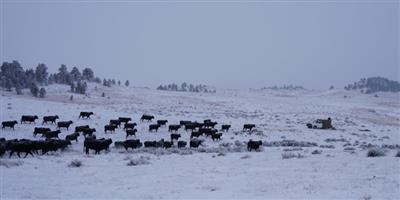Washington Insider reports:
While USDA is mostly known for its farm and food programs, it also is a regulatory agency that manages the Grain Inspection, Packers and Stockyards Administration that traces its roots back to the fight against the grain and meat trusts of the early 20th Century. For example, The Hill wrote that USDA “is playing a game of chicken with food manufacturers.”
The Hill says the fight “pits small chicken farmers against much larger food processing companies,” and quotes USDA as saying that its new regulations will “level the playing field.”
Secretary of Agriculture Tom Vilsack told the press that for years American farmers have been calling for protections against “the most damaging, unfair and deceptive practices confronting family farms across the country.” And, he added, “All too often, processors and packers wield the power, and farmers carry the risk.”
The Hill cited an example of a chicken grower who displeases the contractor and “attempts to organize other chicken growers to bargain for better pay or publicly expresses unhappiness with the way they are treated…processors could require growers to make investments that are not economically justifiable for the grower, or can terminate contracts with little notice.”
So, the USDA's new “Farmer Fair Practice Rules” and the criticisms they are attracting are generating considerable press attention. For example, Bloomberg quoted “livestock groups and lawmakers” who are critical of USDA's timing, calling the rules “midnight regulations”' that totaled over 200 pages.
There new releases included three rules, one “interim final” rule and two proposed. The “interim final” rule covers the “scope” of the P&S Act and removes the need to find “harm to competition or likelihood of harm to competition in order to find violations. Now, USDA says to the extent that courts failed to defer to USDA's interpretation of the statute “because that interpretation had not previously been enshrined in a regulation,” this new regulation may constitute a material change in circumstances that warrants judicial reexamination of the issue.”
The second and third rules propose to establish criteria for determining which practices are illegal and whether food processors have engaged in those activities. These address the contracts between poultry and livestock producers and the processors that buy their products and would regulate “undue preference and the tournament-style system” in which poultry processors pay producers.
USDA notes in the rules and in other documents that Congress had prevented USDA from finalizing these rules since Fiscal 2012 via the annual appropriations process. But that prevention was not included in the Fiscal 2016 appropriations measure. Bloomberg notes that USDA then “swung into action to move forward on the rules.”
Vilsack was asked if he expected “frivolous lawsuits” resulting from the rules, a possibility he insisted is “absurd,” but which others consider likely. While the National Farmers Union welcomed the rules, others in the U.S. livestock and food industry do not agree. “This rule making will drastically limit the way our producers can market cattle,” said National Cattlemen's Beef Association President Tracy Brunner.
The National Chicken Council indicated they would keep “all options” open on the rules and predicted “frivolous lawsuits” that will translate into higher costs for consumers. The National Pork Producers Council said it would work to repeal the rules. NPPC CEO Neil Dierks said that the rules “creates legal uncertainty” and will destroy opportunities for many in the US pork industry, with no positive effect on competition, the regulation's supposed goal.”
Several Republican agriculture policy leaders also criticized the USDA action. For example, Senate Agriculture Committee Chairman Pat Roberts R, Kan., said the rules would limit economic freedom for livestock and poultry producers and has been controversial since it was originally proposed in 2010.
House Agriculture Committee Chairman Mike Conaway R-Texas, said he was “disappointed” with the midnight regulations and vowed to roll them back. “I plan to closely review the rules, but stand committed to working with industry, the incoming Secretary of Agriculture, and my colleagues in the House and Senate to ensure that the livestock and poultry industries remain able to do business without the constraint of unnecessarily burdensome regulations,” Conaway said in a statement.
USDA's effort to strengthen its contracting rules has been controversial since the beginning of the current administration and now faces broad opposition from livestock groups and food processors. It certainly will face strong skepticism from the incoming Secretary of Agriculture, as well as from the Congress, Washington Insider believes.
© Copyright 2016 DTN/The Progressive Farmer. All rights reserved.


